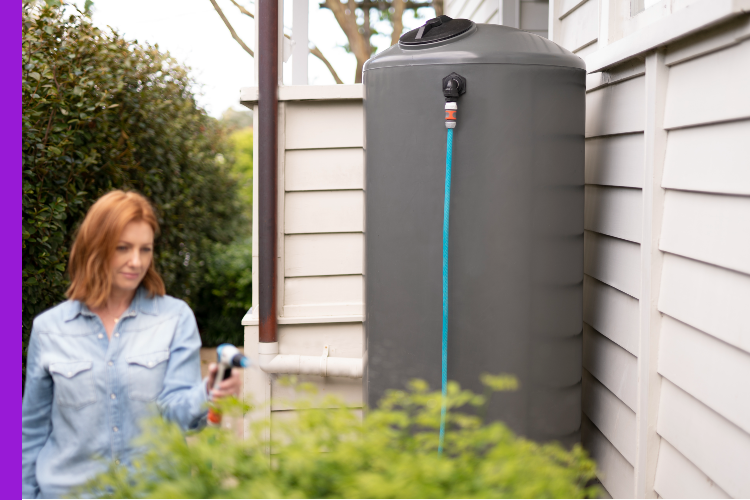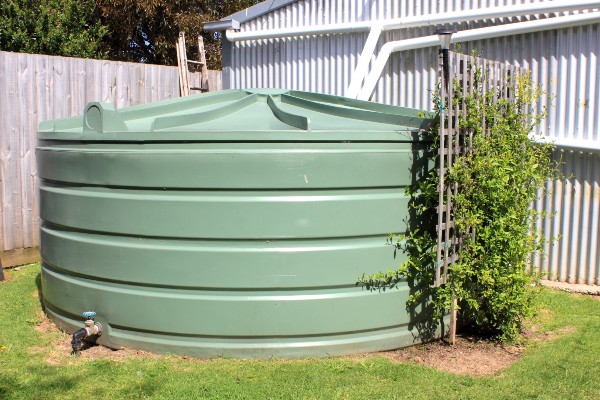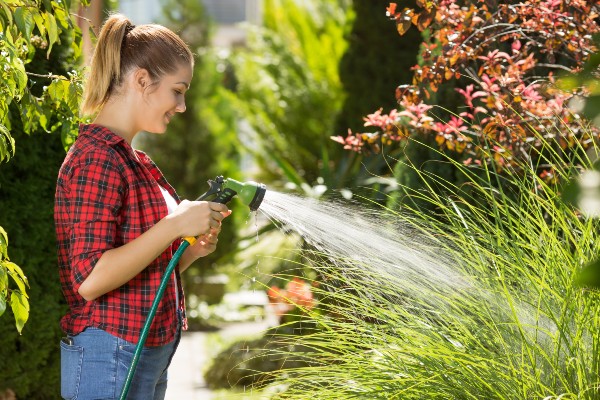
Installing a water tank on your property can offer protection during times of drought.
Installing a water storage tank on your property can offer protection during times of drought and could also save you money on water in the long term.
It’s also an environmentally friendly way to conserve rainwater for your home and garden.
REDnews spoke to the CEO of Bailey Tanks Ltd, David Bailey, and asked him the 22 most searched questions on Google about water tanks.
Do you need resource consent to install a water tank?
In some situations, you need a resource consent, for example if it’s close to the boundary of the property, if the tank is too tall and it depends on which zone you live in. I recommend looking on your council’s website.
(On July 1 the Auckland council temporarily removed resource consent fees for rainwater tank applications to encourage rainwater tank installation during Auckland’s water crisis. The rainwater tank assessment form can be found on councils’ websites and Auckland Council has an online tool to check if you need consent.)
What size tank do I need?
We would base that on the size of your section, the size of the catchment area, how much roof area you have and what you want to use it for. If you live in Auckland and just want to use it to supplement your existing supply and water the garden for example, we’d suggest a 1,000 to 5,000 litre tank. However, if you are looking to use the water inside your house or use it for drinking water, we’d suggest a 25,000 to 30,000 litre tank.

Water tanks range in size from 1,000 litres, up to 30,000 litres and above.
Can I install it myself?
A handy person would be able to install it themselves if they can do a bit of plumbing themselves. Otherwise, a plumber or drain layer would install it. It would take a couple of days to do it yourself, but a plumber could do it quicker.
Will water storage tanks freeze?
No. We have tanks down in central Otago in very cold temperatures and they don’t freeze. This is because there’s such a large volume of water and it would take a very long time of sub-zero temperatures to freeze a tank.
How do water tanks work?
Water tanks work by collecting rainwater from your roof. The water normally goes down a downpipe which you divert into the tank and that fills the tank. You’d have a pump that pumps the water into the house or garden.
Alternatively, you can use gravity to get the water to where you want it, like the garden. If you’re only using the water in the garden, you wouldn’t need a filter, but for drinking water you would want to add a filter.
Why are water tanks kept at a height?
This is to help with the gravity method. The higher the tank is up in the air, the more pressure you’ll get for it to flow into your home.
Why are water tanks circular?
It’s a stronger shape. A square tank would try to bulge into a round shape unless it had a lot of bracing to hold it into a square. The most economical way to make a tank is round.
Can water tanks explode?
A water tank could leak if it’s not made properly, but we’ve never had one explode.
Can water tanks be repaired?
Yes, our plastic tanks can be welded.
Can water tanks leak?
Theoretically yes. This is very rare and usually due to incorrect plumbing.

Storage tank water is great for watering the garden in times of drought.
Can water tanks be buried?
Yes, we have a range of tanks designed to be buried, but these are more expensive.
Can water tanks be moved?
Yes. You could uninstall it, empty it and move it.
Where is the best place to buy a water tank?
Through a local authorised agent or reseller or visit www.tanks.co.nz.
Can you rent a water tank?
No.
How much do water tanks cost?
Anywhere from $300 to $4,500.
Are water tanks covered by insurance?
Yes but check your individual policy under house and contents.
Are water tanks sustainable?
Ours are, we just created a water tank recycling programme to put old tanks back into non-critical parts. But New Zealand standards say tanks have to be made from virgin plastic.
How long do water tanks last?
We’ve been making them for almost 50 years and they’re still going. We’re the oldest company providing them in New Zealand.

If you're using tank water to drink, you will need to install a filter.
Are water tanks worth the cost?
Yes. It saves money on your water bill and for people living in rural areas, water is their most critical resource. It would have been worth having a water tank in Auckland during last year’s drought. However, the cost savings vary on rainfall and how much of the water tank water you use.
Which water storage tank is best?
There are different designs, manufacturers, materials and sizes. The best tank is from a company that’s been making them for a long period of time. I recommend buying a polyethylene tank, but the size and design depends on the space you have. A round tank will take up more space but will be more economic. An underground tank will take up no room but is very expensive. A slim tank will take up less room but is more expensive than a round tank too.
Why use a water storage tank?
It offers security from droughts, and you can keep your lawn green and car washed even in times of water scarcity.
How should I maintain my water tank?
We recommend inspecting your roof, gutters, tank inlets and outlets and screens every six months. Remove leaves and dead insects from your roof and gutters regularly and clean your water tank once every couple of years.
Related articles:
Can you change your property's capital valuation?
